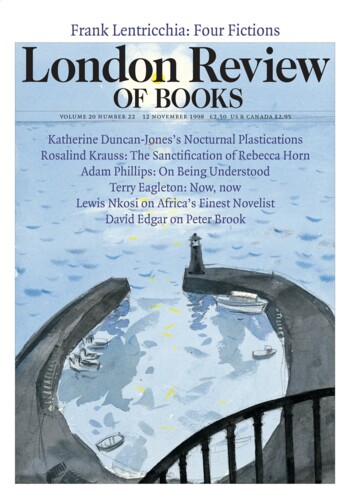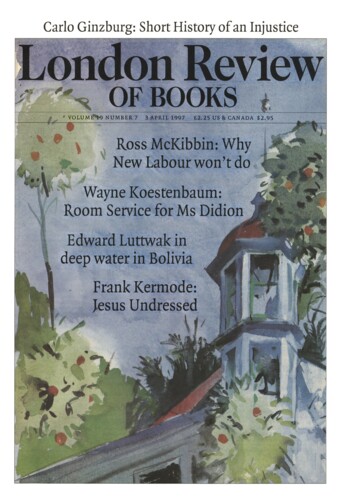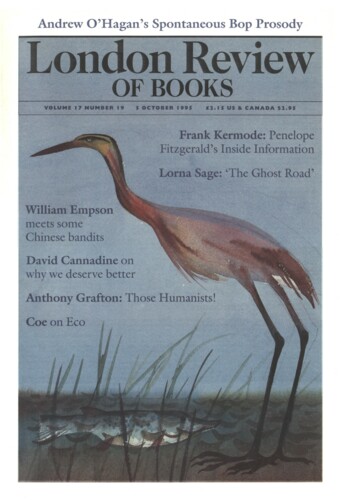Story: ‘Islas Malvinas’
Frank Lentricchia, 1 April 1999
‘As we grow older,’ Lucchesi says at sixty, alone, at his desk, ‘we grow more extremely ourselves. Contact depresses us; conversation debilitates.’ Words spoken with forced eloquence, like a bad classical actor in an old movie. And yet, except for hiding himself behind collective pronouns, Lucchesi spoke sincerely. Forced eloquence had long since become second nature to him, there in his cramped writing room, where the writing no longer comes, and where he now makes desperate calls at all hours, to contact those he’d barely known in his early schooldays, and hasn’t seen since. Only names now, at the farthest edge of memory; names dragging reluctant images of fresh faces, in black and white, of ten, and 12, and 14-year-olds.‘




